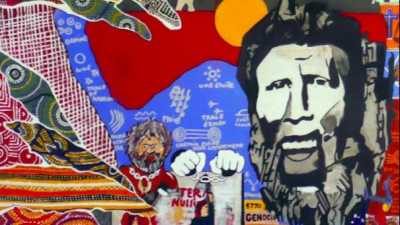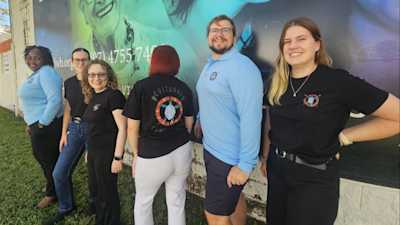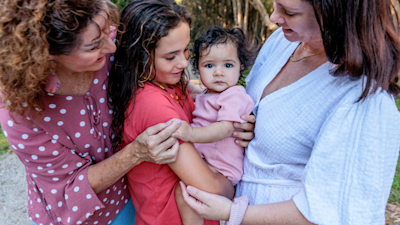Cultural value is not measured by an assessment of income or position...it is about people and relationships.
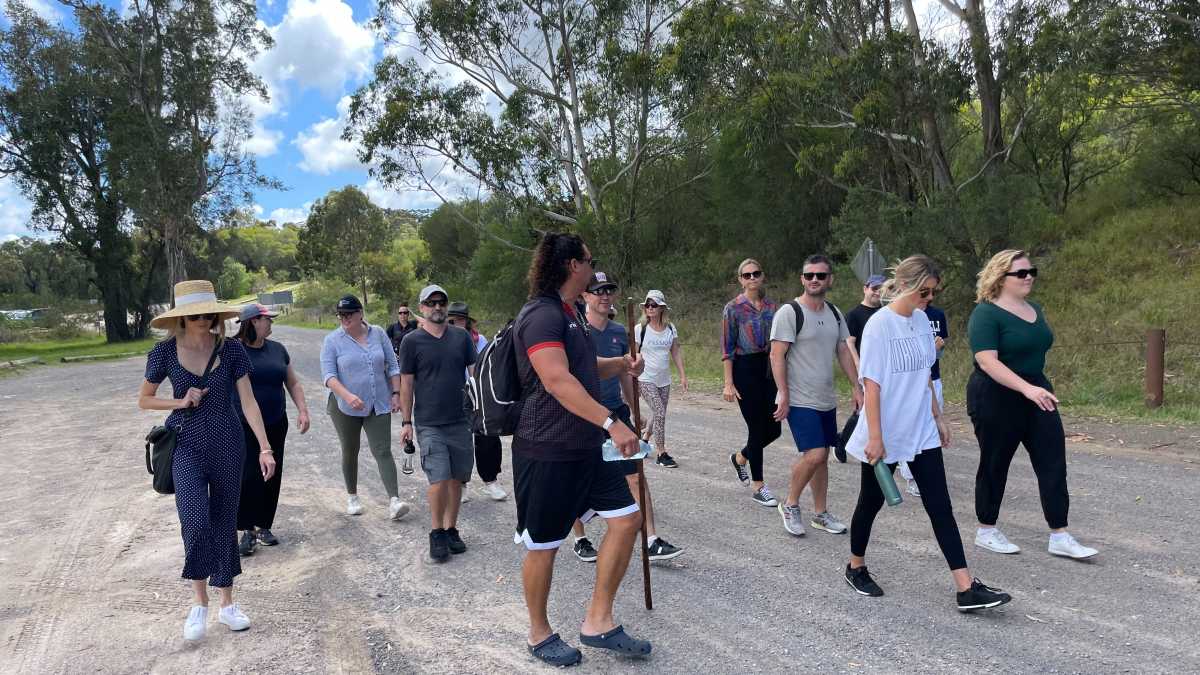
Image: A group of Life Without Barriers staff being led through trees on the cultural walk.
Colleagues from across Life Without Barriers attended a cultural immersion day at the Murrook Culture Centre in Worimi/Newcastle. It was an amazing experience for everyone who attended and had the chance to connect to Worimi* Country through stories, walking in the dunes and learning about bush resources. It was a grounding experience and one the group won't soon forget.
“What I take away most is how much I absorbed from the day attending one of our ‘first class rooms,’ whilst being in a dynamic that just felt like catching up with a bunch of old friends." Shared Brooke, Experience Designer.
"I feel like that’s partly due to the passion of our legendary guide, alongside what I can only describe as an activation of knowledge and connection to Country that I have come to learn is ingrained in every single one of us. So I’m humbled that our First Nations people – with such a history between us – are still so generous to walk us back to that over and over."
"I’m tremendously proud of the space they have created and will endeavour to support them however I can.” Brooke.
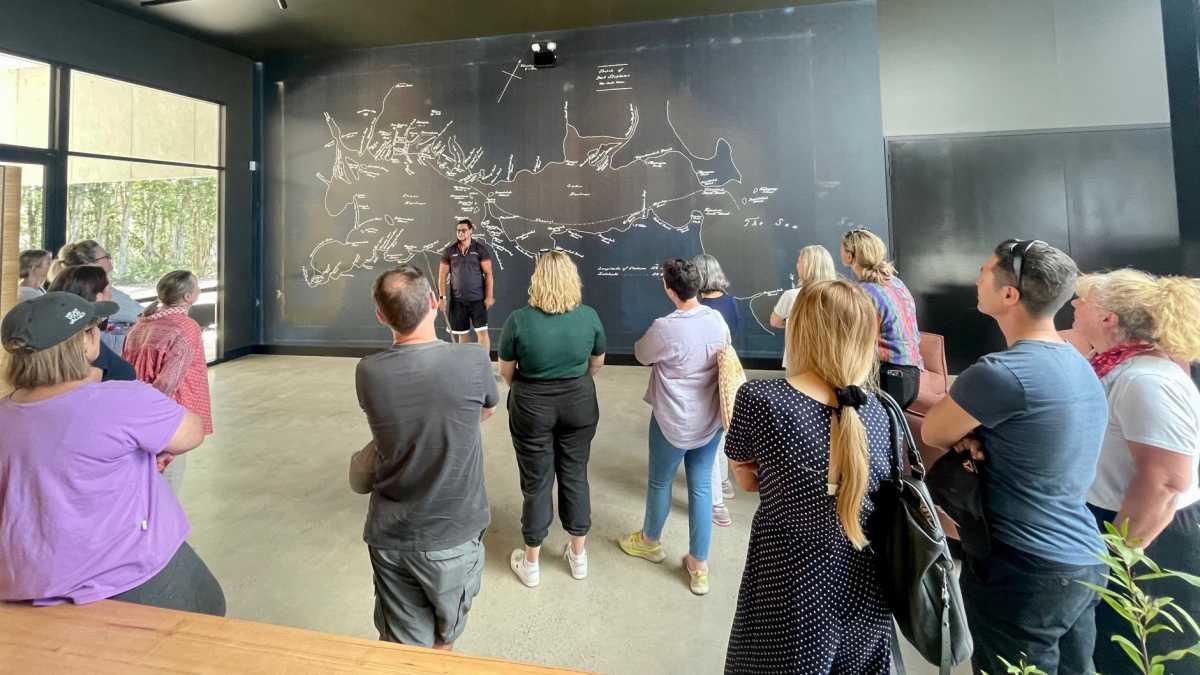
Image: Staff looking at a map of the local Worimi area. Peter, the guide, talked through the local history since settlement. The map is on a black wall.
These Cultural Workshops aim to improve the awareness of Aboriginal culture, to appreciate its beauty, its long history and to acknowledge its diversity.
The Worimi Local Aboriginal Land Council's philosophy is to help others understand by spending time with Aboriginal people. These are not things you learn from books, lectures or the internet.
Here is what our day looked like:
Acknowledgement of Worimi Country and welcome circle. Everyone introduced each other and our own cultural heritage
Dune walk; staff were immersed in the natural landscape. Peter spoke about the shifting dunes and their importance to past generations for food, burial sites and access to the sea. The Murrook Centre is bringing back and protecting the dunes and the ecosystem and diversity within it.
Lunch (catered by a local Aboriginal group).
Bush resources talk; we learned about traditional uses of the local flora.
We then split into two groups and chose to make traditional woven bracelets or learn about traditional tools and weapons.
"It was a day that filled my cup," said Maree, Business Development.
"Wandering through the dunes, learning of some of the stories of the land was more than educative…I really appreciated spending time in a more spiritual and contemplative zone."

Image: Staff in the sand dunes with the tour leader.
The Murrook Journey is more than just creating an ‘awareness’ of Aboriginal Culture. Cultural value is not measured by an assessment of income or position...it is about people and relationships.
The Murrook Culture Centre and its staff encourage honest and healthy conversations. Participants learn about Aboriginal culture and history and advance their insight into the myriad of social, historic, economic and political issues that continue to affect and concern Aboriginal communities.
"The whole experience was amazing! Peter the guide was such a passionate teacher with an amazingly positive outlook and generosity of spirit, especially sharing his stories, whether they were personal, cultural or confronting." Said Carl, Digital Platform Lead.
"Peter also talked us through the pillars that make up the culture and how the disruption of these pillars has affected identity."
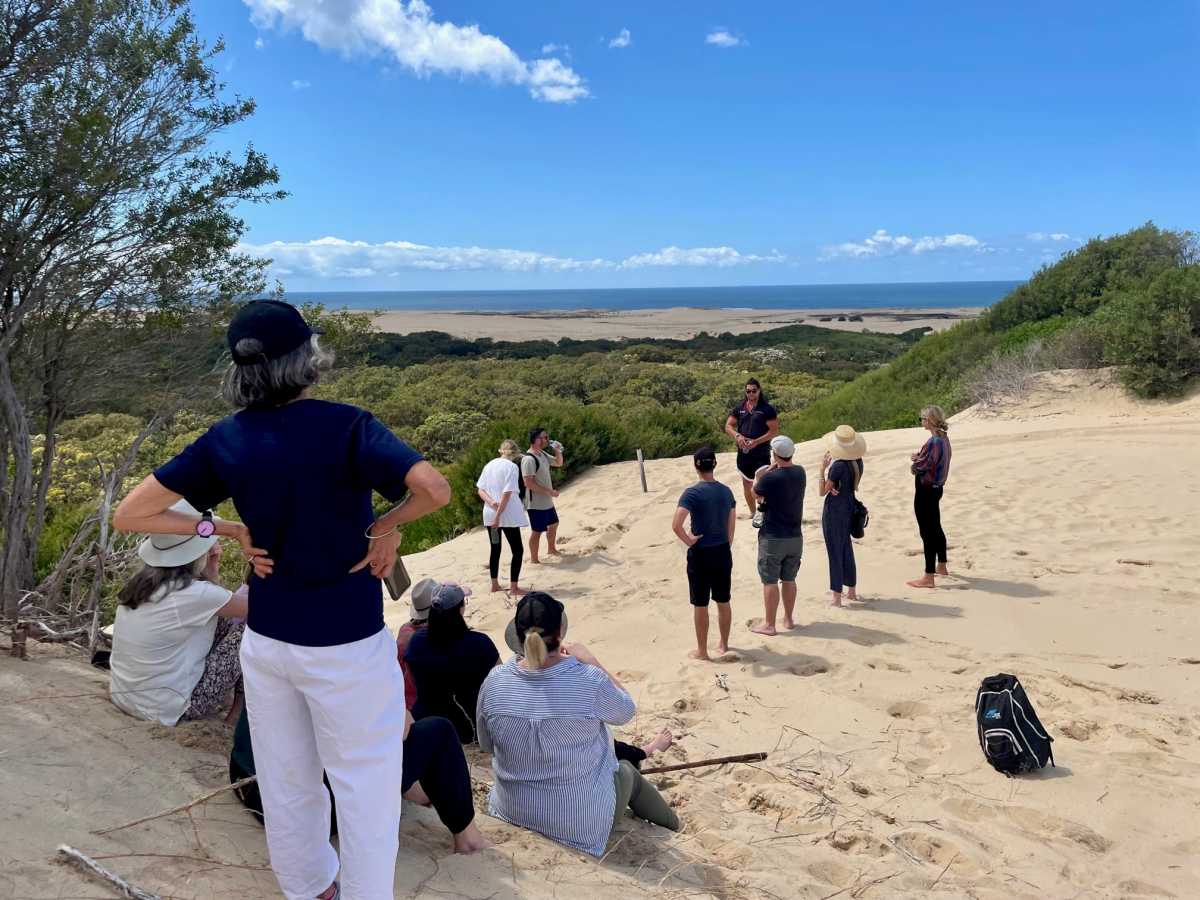
Image: Staff on top of the dunes looking out over trees.
"It was such a special day, and we were all grateful to share it together. I left feeling like Aboriginal culture is being carried forward in safe hands." Shared Melinda Clarke, Manager, Child Safe Organisation.
*The Worimi people are Aboriginal peoples from the eastern Port Stephens and Great Lakes regions of coastal New South Wales, Australia. Before contact with settlers, their people extended from Port Stephens in the south to Forster/Tuncurry in the north and as far west as Gloucester.
